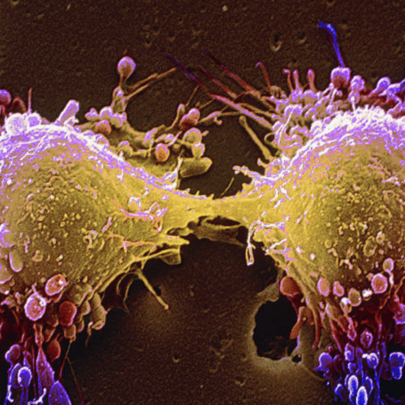The Cutting Edge of Medical Technology Content, Community & Collaboration

By designing small molecules that can “turn off” kinase enzymes stuck in the “on” position, they have managed to ward off cancer’s attack. More recently, scientists have focused on ways to help the body’s own immune cells seek and destroy cancer cells.
Enter the concept known as synthetic lethality. Researchers have long known that a cancer cell hobbling along with one broken gene is vulnerable. Knock out another key gene, they have discovered, and the cell will topple.
The notion of killing cancer cells by damaging their already compromised DNA should sound familiar. Chemotherapy agents do just that, but by using a sledgehammer to smash away at DNA. Because drugs that exploit synthetic lethality act with precision, they promise to be able to discriminate between healthy and diseased cells.
…
“In experiments, you have a perfectly happy cell, you remove one gene and challenge it with one stress, and it dies. You think, ‘Yeah, I’ve got a target now!’ ” says [structural biologist Lance] Pearl, whose lab is working on drugs against synthetic lethal targets. “But that’s not a tumor.”
“Right now, the field is okay at the cellular level. But finding drugs and making sure they actually work in a real tumor is where they need to go.”
The GLP aggregated and excerpted this blog/article to reflect the diversity of news, opinion, and analysis. Read full, original post: Driving cancer beyond the brink
Views: 10
Comment
© 2025 Created by CC-Conrad Clyburn-MedForeSight.
Powered by
![]()
You need to be a member of MedTech I.Q. to add comments!
Join MedTech I.Q.